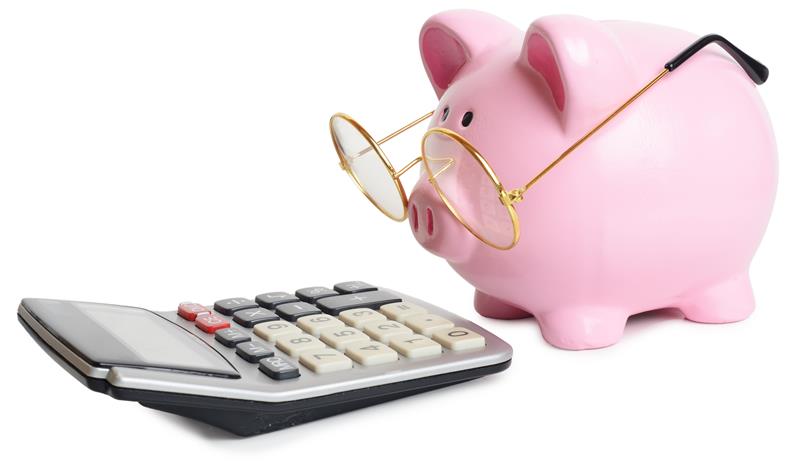
Common Financial Mistakes
Money management is like many things in life, we learn through practice and experience, we all make mistakes along the way, but those mistakes serve as a teaching tool. Here are some common financial mistakes to avoid.
No Budget
A budget simply tracks your income and spending. It shows you where your money is going. Calculate your total monthly income and expenses, rent or house payment, utilities, food, savings, clothing, entertainment, and anything else you spend money on. You should have money left over after all your bills are paid. If you don’t have enough revenue to cover your expenses, you need to find ways to decrease your spending or increase your income.
Not Using Your Credit Card Correctly
A credit card should be used as a tool to build credit and earn cash back and reward points. Your balance should be paid in full each month. Choose a few credit cards that offer the most advantages, with no annual fee. Use them to pay your bills and purchase necessities. If you cannot afford to buy something don’t charge it.
Not Evaluating Expenses
Several times a year look at recurring expenses, streaming services, cable TV, mobile phone service, memberships, food delivery, and anything else you pay for. Consider eliminating services you no longer need, for instance if you have a monthly gym membership but have only been to the gym once or twice that month is it worth the expense? Would you be better off working out at home? Look at your TV usage. Do you need to pay for the packages you have? You might instead put up an OTA antenna and use free streaming services, look for less expensive cell service. If you pay for newspaper or magazine subscriptions, can you read online for free? Review any trial memberships, often people sign up for a free trial and forget to cancel before the monthly subscription fee begins. Any expenses you can eliminate or reduce saves money.
Not Having a Savings Account & Emergency Fund
An emergency fund is a cash reserve that is set aside for unplanned expenses or financial emergencies. Examples include loss of income, auto & home repairs, and medical bills. According to Bankrate “More than half (51 percent) of people have less than three months’ worth of savings in an emergency fund”
Ideally you should have enough money in an emergency fund to cover 6 months of expenses. Consider allocating 5% of take-home pay to your emergency account.
Additionally, putting money from each paycheck into a savings account, even just a few dollars each payday makes a difference.
Not Having a Retirement Account
None of us should depend fully on Social Security to support us in retirement. Social Security was never intended to be a primary source of income for retirees. The Social Security Administration suggests that the program is designed to replace about 40% of the average workers wages, so it is important to have other sources of income when you retire. If your company offers a retirement plan, participate. If your employer matches any portion of your contribution to your retirement account, consider maximizing the amount you contribute. That way, you will get the full benefit offered by your employer, but don’t limit yourself to that amount, if you can contribute more do so.
Wasting your Tax Refund
If you receive a tax refund don’t think of it as extra money. Instead put it in a savings account, pay off credit cards or outstanding debt, make an extra loan or mortgage payment, or invest it for retirement.
Spending too Much on Housing
Be conservative when renting or buying a home. You should easily be able to make your monthly rent or mortgage payment with plenty left over for all other expenses. A long-standing rule is to never spend over 30% of your gross monthly income on housing.
Spending too Much on a Vehicle
Aside from buying a home, a car is probably the most expensive purchase you will ever make. Most of us do not need to purchase a new vehicle which can depreciate quickly, and if you take out a loan to pay for the vehicle you are paying interest on a depreciating asset. Expensive new cars are rarely worth the return on investment. Shop for a reliable, used car instead. Be sure you can easily afford the monthly payments, plus insurance, fuel, and repair costs.
Ignoring a Low Credit Score
A good credit score is important, if you have a very low score, FICO range of 300 to 579 or Vantage Score range of 300 to 600, you will pay a higher interest rate on loans and credit cards, pay more for auto and homeowners’ insurance, miss out on career opportunities, and have a difficult time renting an apartment or signing up for utilities. Review your credit reports regularly with the three major credit bureaus, Equifax, Transunion, and Experian. You are entitled to a free annual copy of your credit reports.
https://www.annualcreditreport.com
If your score is low take steps to increase it.
Pay your bills on time.
Don’t miss payments.
Pay your credit card off in full each month.
Use 30% or less of your available credit.
Limit requests for new credit.
You should also freeze your credit with the three bureaus. Freezing your credit is one of the best ways to prevent identity theft and fraud. When you freeze your credit it locks your files, thus preventing credit checks which blocks unauthorized individuals from obtaining credit cards, loans, or anything else in your name that requires a credit check.